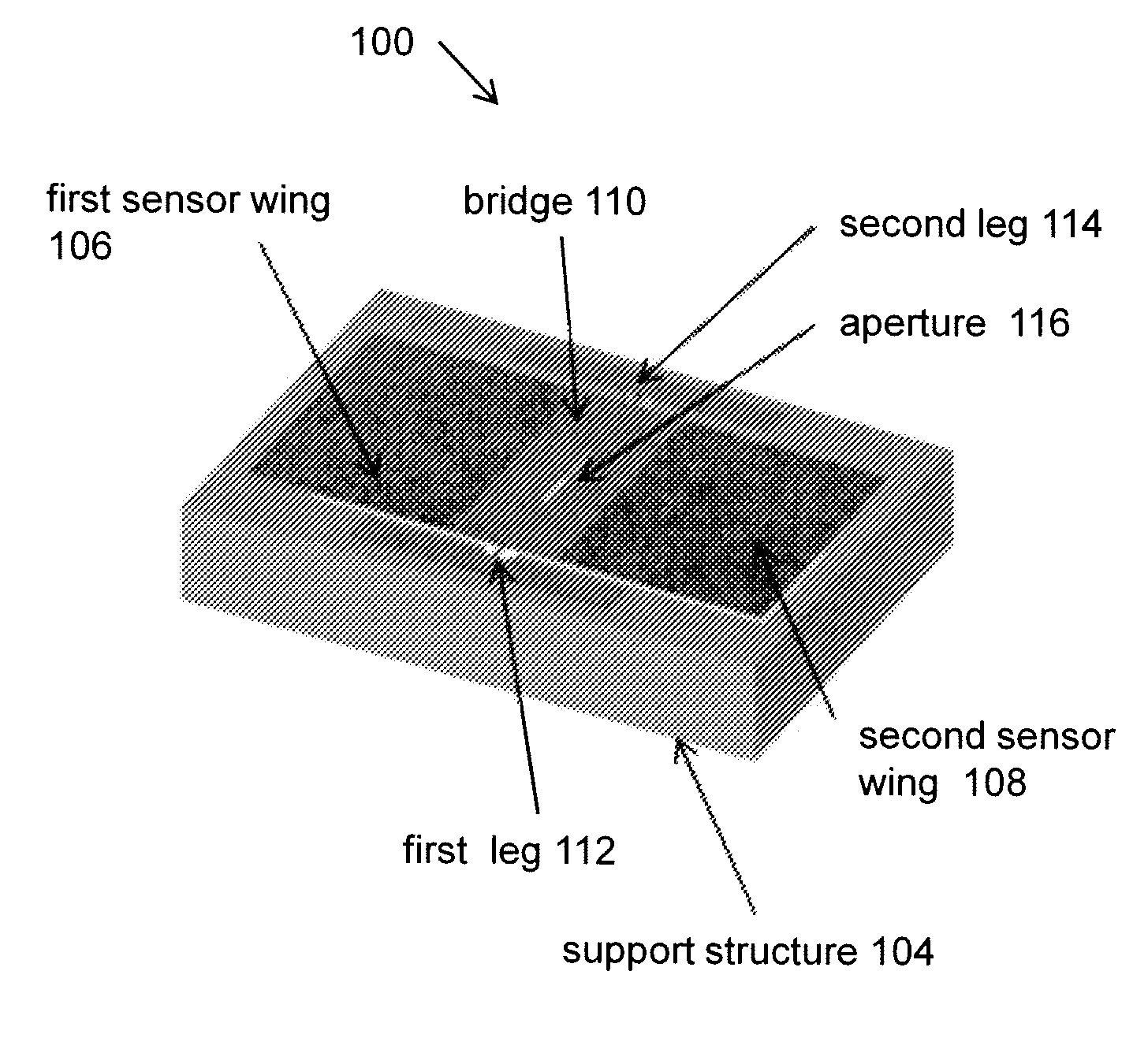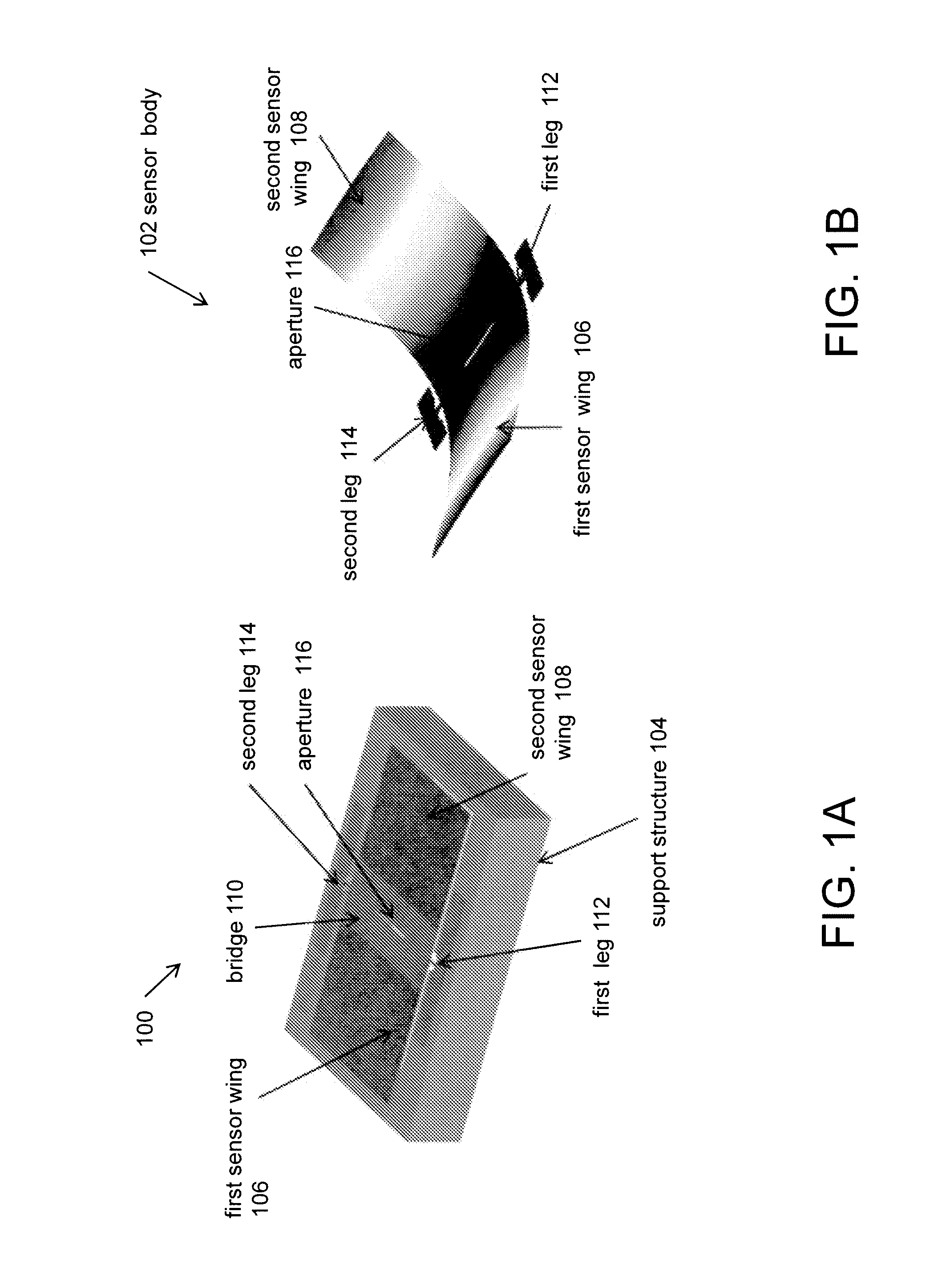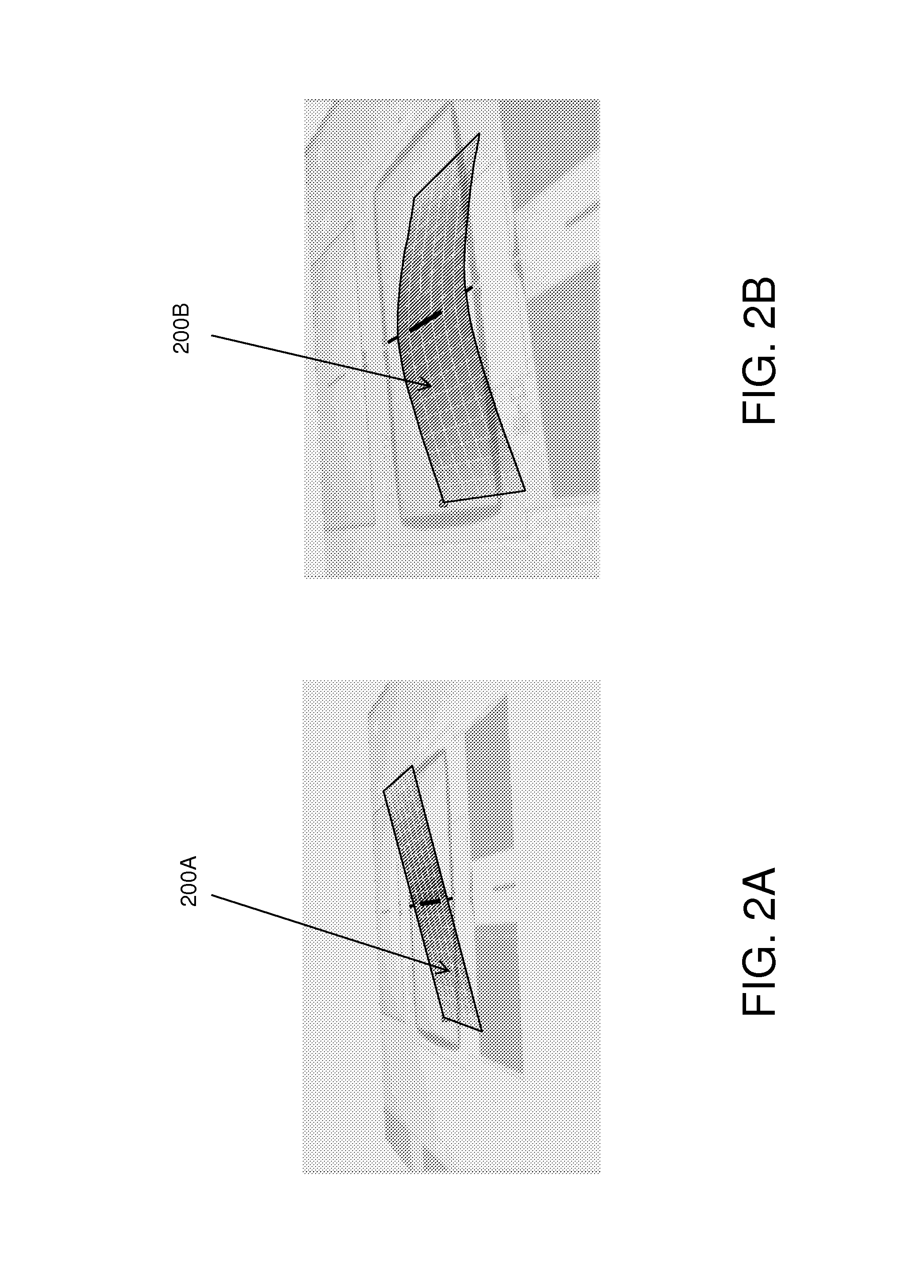Miniature micro-electromechanical system (MEMS) based directional sound sensor
a micro-electromechanical system and directional sound sensor technology, applied in the field of sound sensors, can solve the problems of large system and bulkyness
- Summary
- Abstract
- Description
- Claims
- Application Information
AI Technical Summary
Benefits of technology
Problems solved by technology
Method used
Image
Examples
Embodiment Construction
[0025]Directional sound sensing systems generally use an array of omnidirectional microphones to sense the time and pressure difference between multiple locations. Given the sound speed, the direction of the sound source in relation to the array can be determined. In this type of configuration, the accuracy of the calculated direction is largely dependent on the extent of separation between array nodes. This requirement for spatial separation poses a significant challenge for fabricating systems which are much smaller than the wavelengths of interest because the responses at all locations are essentially in-phase and practically no measurable difference is observed between nodes. However, the Ormia Ochracea fly achieves the directional sound sensing by using ears that are separated by a mere 500 μm.
[0026]The separation of the ears of the fly is too small for it to sense the direction of a sound source, if it uses the difference in arrival times and amplitudes of sound at each ear, a...
PUM
 Login to View More
Login to View More Abstract
Description
Claims
Application Information
 Login to View More
Login to View More - R&D
- Intellectual Property
- Life Sciences
- Materials
- Tech Scout
- Unparalleled Data Quality
- Higher Quality Content
- 60% Fewer Hallucinations
Browse by: Latest US Patents, China's latest patents, Technical Efficacy Thesaurus, Application Domain, Technology Topic, Popular Technical Reports.
© 2025 PatSnap. All rights reserved.Legal|Privacy policy|Modern Slavery Act Transparency Statement|Sitemap|About US| Contact US: help@patsnap.com



